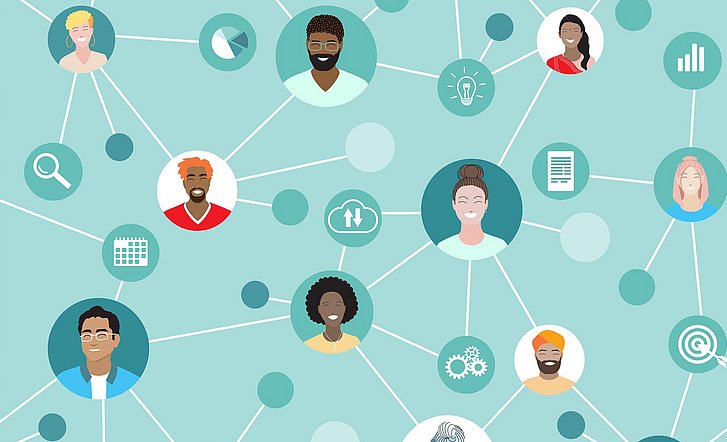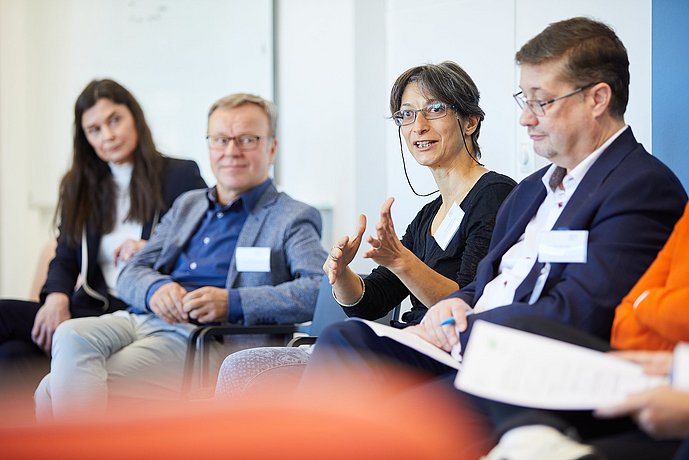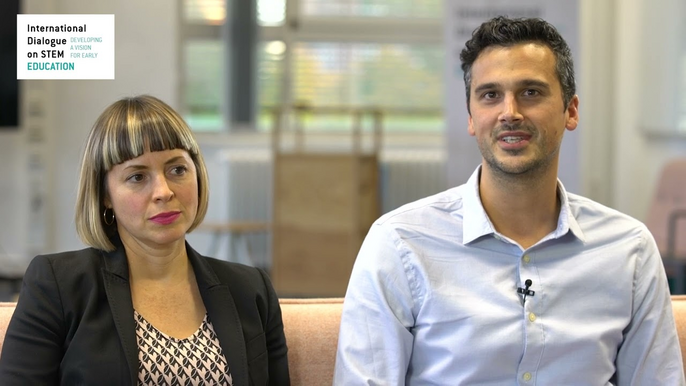
© iStock.com /Tasha Art
Why we need STEM Education networks worldwide – right now!
The best foundation of a resilient society is a good education system for its citizens. To enable this, even where few resources are available, networks are becoming increasingly important. The six members of the International Dialogue on STEM Education (IDoS) are part of such education networks locally and internationally. This article gives an insight into the importance and impact of their work.
An often-quoted proverb says: "If you want to go fast, go alone. If you want to go far, go together." (Source unknown.) Collaboration is a key to achieving significant milestones. In this spirit, the members of IDoS came together several times in 2022 to share their experiences and knowledge in the field of early STEM Education (STEM = Science, Technology, Engineering/Computer Science, Mathematics).
The current topic of their exchanges is networking. IDoS itself is a "network of networks" that was founded in 2020 to facilitate a professional exchange on an international level between organisations. The members are designated "peers" who are committed to promoting high-quality STEM Education in their countries, for example by providing continuing professional development training of pedagogical staff at early childhood education and care centres, after-school centres, and primary schools. Within a short time, IDoS grew to six peer organisations. Their common goal: To provide children worldwide with high-quality STEM Education and make them strong for the future, so that they learn to think critically and act sustainably.
STEM Education as the key to sustainable development
For a sustainable future, collective and smart action could not be more urgent in the face of the climate crisis, pandemic, war, and increasing social inequality. The IDoS peers agree on this. Politicians are called upon to find good solutions across countries and to improve the framework conditions in their own countries, so that common goals can be implemented in the long term. This also includes ensuring a quality education for all children, for they play a decisive role in shaping tomorrow's society.
Elena Pasquinelli, IDoS peer and scientist at Fondation La main à la pâte, explains: "We are all facing major societal challenges today. Climate change or the transformation to sustainable development challenges us to find solutions for society as a whole and to empower children to think critically and scientifically, giving them the knowledge to make informed choices. This is important for France, but equally for all other countries."

© René Arnold/Stiftung Kinder forschen / Elena Pasquinelli, Fondation La main à la pâte, together with other peers at the IDoS meeting in Berlin in 2022.
Ground-breaking solutions require innovative technologies that demand a high level of competence from their developers. The problem is that young skilled workers needed for such innovations are scarce. This was proven, for instance, by Germany's latest STEM report (MINT-Herbstreport), according to which there was a shortage of around 326,000 STEM experts in Germany in 2022.
The situation is similar in other western countries. The British Prime Minister acknowledged the lack of mathematical skills in the country. In the US, there is even talk of a STEM crisis that threatens national security. While the mission to the moon during the Cold War still motivated a revolution in STEM Education in the USA, interest in science and technology has been flagging again since the 1980s. Fewer and fewer young people are opting for STEM Education in the United States today - similar to Europe.
Video: IDoS Peers on the Role of STEM Education and Networks
(IDoS) Networks as amplifiers of impact worldwide
STEM Education networks are increasingly in demand when it comes to strengthening education systems and getting children excited and competent about science and technology at an early age. Networks work on a large scale and through cooperation between a wide range of actors from education, politics, business, science, and society.
For example, initiatives such as the LUMA Centre Finland or the French Fondation La main à la pâte - both IDoS peers - have long worked closely with science and universities to improve the quality of science teaching in schools. Similarly, the Smithsonian Science Education Center brings together young people, educators, scientists, researchers, community leaders, and museum professionals in a “Network for Emergent Socio-Scientific Thinking” (NESST) – a network dedicated to educating for the future.
In Germany, the "Haus der kleinen Forscher" (Little Scientist's House) Foundation cooperates with around 200 local network partners who help to make the Foundation‘s continuing professional development programme available nationwide. The partners include municipalities and early childhood education and care providers, trade associations, science centres, museums, companies, foundations, and associations. This network-partner system is the most important pillar of the Stiftung "Haus der kleinen Forscher" initiative for the development and coordination of local structures and the promotion of local educational work.
Siemens Stiftung is also active at a local level but is positioned internationally – for example with its "STEAM Territories": regions in Latin America where knowledge on STEM and arts (= STEAM) subjects are strengthened in local communities. The local networks consist of strategic and operational actors from civil society, government, academia, and the private sector. They pool their interests and resources to deliver STEM programmes locally and strengthen the education system.
The Office for Climate Education (OCE) is primarily involved in climate change education in developing countries and, among other things, adapts the IPCC reports (report on the consequences of climate change) in a comprehensible way for school teachers. Djian Sadadou is a networks manager at the OCE.
“Climate change is a global problem but it has local solutions. To take this 'glocal' approach, we need networks. Networks are a critical component to achieving transformative action at the local level, which in turn has a global impact. [...] [They] allow us to scale up impact, activities, inspiration and, last but not least, hope. And it is this hope that is particularly important in the fight against climate change and social challenges”, he explains the role of networks.
To be published in 2023: Learning paper on impact-oriented networks
The members of the International Dialogue are currently compiling the knowledge they have gained about effective networking in the form of a joint learning paper. The publication is on the topic: "Impact-oriented Networks", which will be published in spring 2023. It demonstrates the success factors of good networking for early STEM Education. The paper draws on both scientific findings and the testimonials of each peer, which were compiled specifically for this publication. It is intended to serve peers and other STEM Education initiatives that are already actively working in networks or would like to further increase their impact and learn about influencing and success factors of networking.
